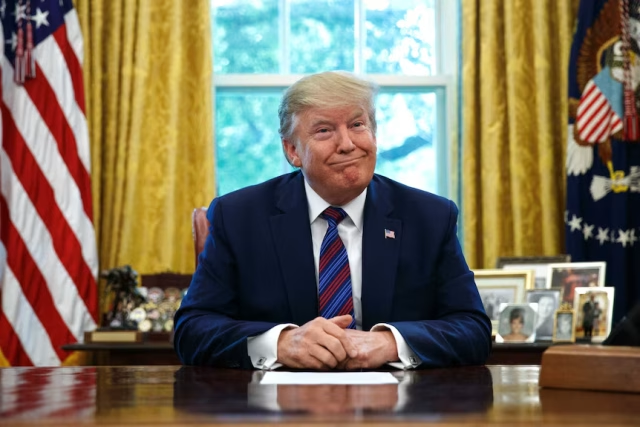As the United States enacts a 15% tariff on Nigerian exports effective August 2025, Nigeria’s insurance sector is being urged to strengthen risk management frameworks and innovate its product offerings to support exporters navigating new trade challenges. The tariff, implemented under a July 31 executive order by President Donald Trump, targets countries with which the U.S. maintains a trade deficit—Nigeria among them.
The move escalates tensions in bilateral trade and introduces fresh uncertainties for Nigerian businesses exporting to the U.S. market. With Nigeria’s insurance sector having recorded a robust N1.56 trillion in gross written premiums in 2024—up 56% from the previous year—industry leaders say now is the time to pivot strategically.
“This is a pivotal moment for Nigeria’s insurance sector,” said Mr. Ade Adesokan, insurance expert and public affairs analyst. “The sector has shown remarkable growth and resilience. But with rising trade barriers, it must now evolve to protect exporters and maintain momentum.”
Tariff Hike: From 14% to 15%, With Potential for More
Originally set at 14% in April 2025, the U.S. tariff on Nigerian goods was suspended for 90 days, then extended an additional month to allow negotiations. Now reinstated at 15%, the duty applies across all goods entering the U.S. from Nigeria.
More concerningly, President Trump has threatened an additional 10% tariff on nations aligning with BRICS economic policies. Nigeria’s recent admission as the ninth BRICS partner country in January 2025 could expose it to a total 25% tariff if the threat materializes—further straining export competitiveness.
Adesokan highlighted several key areas within Nigeria’s insurance sector likely to face immediate impact:
Marine Insurance: With exporters likely to reduce shipment frequency or consolidate cargo to offset costs, insurers must reassess pricing models and exposure.
Trade Credit Insurance: Demand is expected to rise as businesses seek protection against non-payment. However, insurers may face higher claims if U.S. buyers delay or cancel orders due to increased product costs.
Property and Casualty Insurance: Export-dependent manufacturers and agro-processors may scale back operations or delay expansion, affecting asset valuations and coverage needs.
Business Interruption Insurance: Firms heavily reliant on U.S. markets could trigger claims if export revenue declines due to reduced demand or contract cancellations.
Opportunity in Diversification
The tariff pressure may accelerate Nigeria’s ongoing push to diversify export markets beyond the U.S. This shift presents both challenges and opportunities for Nigeria’s insurance sector.
“As exporters explore new trade corridors in Asia, Europe, and Africa, insurers must build expertise in cross-border risk assessment,” Adesokan noted. “While geographic diversification spreads risk, it demands investment in market intelligence and localized underwriting capabilities.”
Adesokan called on key industry regulators—the National Insurance Commission (NAICOM), Nigerian Insurers Association (NIA), and Nigerian Council of Registered Insurance Brokers (NCRIB)—to provide proactive guidance.
“Regulatory flexibility is crucial,” he said. “Insurers need room to innovate while ensuring consumer protection and financial stability are not compromised.”
Despite external pressures, Nigeria’s insurance sector continues to demonstrate strength. In 2024:
Gross Written Premiums: N1.56 trillion (56% YoY growth)
Non-life: N1.1 trillion
Life: N470 billion
Total Assets: N3.9 trillion (up 46.1% from N2.67 trillion in 2023)
Market Capitalisation: N1.2 trillion (41% increase from 2022)
Claims Paid: N622 billion (N437 billion in non-life, N185 billion in life)
These figures reflect a maturing industry capable of weathering macroeconomic shocks—provided it adapts swiftly to evolving trade dynamics.
Follow us on Instagram
https://www.instagram.com/businessnewsng?igsh=ZXpweTdjOGF1ZXdu





















